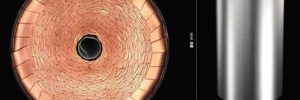
Tesla’s new 4680 cell features a new chemistry that promises to boost efficiency and reduce costs. Now Panasonic says it is investing heavily in the development of the new cell, and plans to start mass production as early as 2023.
The new cell is about twice the size of Tesla’s current 2170 cell, but has five times the capacity. The greater energy density should allow EV-makers to increase range, reduce costs, or both. According to Nikkei Asia, the new cell should cost 10% to 20% less per kWh to produce than current cells.
Panasonic plans to invest some 80 billion yen ($704 million) to expand its plant in Wakayama prefecture and install new equipment to mass-produce the new Tesla batteries. The Wakayama factory’s annual production capacity is expected to be about 10 gigawatts per year—around 20% of Panasonic’s tiotal production capacity, and enough to equip 150,000 EVs.
Panasonic’s rivals are also bulking up on batteries. China’s CATL recently announced new investment of around 2 trillion yen. LG Chem has raised around 1 trillion yen by listing an affiliated company, and plans to use the proceeds to invest in the US. Toyota says it will invest 2 trillion yen in battery production and development by 2030.
Source: Nikkei Asia
from Charged EVs https://ift.tt/aB9iFcIdh


No comments:
Post a Comment